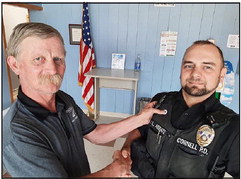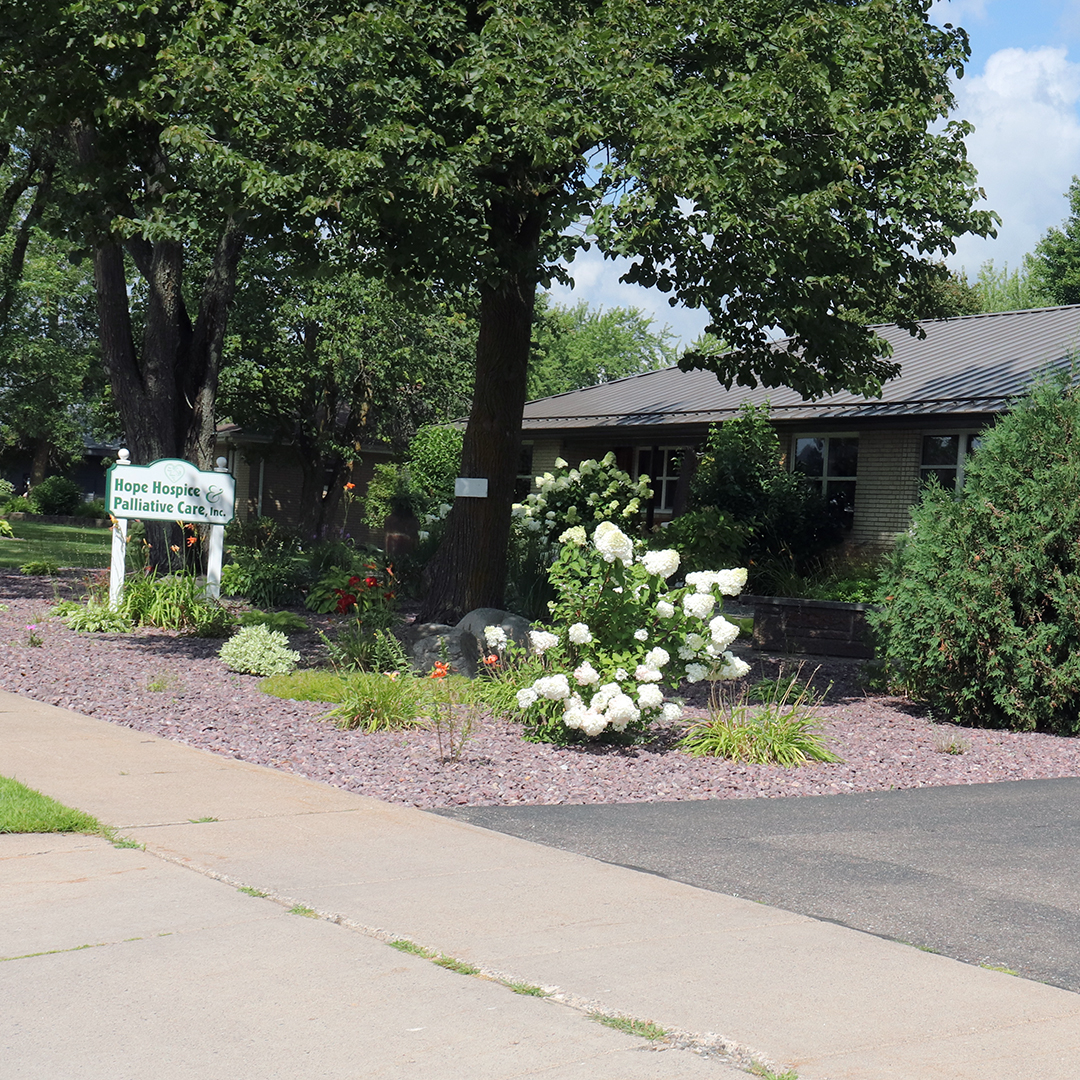Cornell officers undergo EMR training to better serve


Cornell mayor Mark Larson (left) puts on the pin Cornell Police Officer Luke Abbate (right) earned, after completing Emergency Medical Responder (EMR) training. The police officers are licensed under the Cornell Area Ambulance Service and are able to provide care on medical calls, until the ambulance service arrives at the scene. Submitted Photo
By Julia Wolf
The Cornell Police Department is taking steps to better be able to serve the community, by undergoing additional medical training.
Cornell Police Chief Glenn Rehberg says Cornell is one of three police departments in the state, that is medically licensed.
Rehberg and full-time Officer Luke Abbate finished their training, and got their Emergency Medical Responder (EMR) licenses. Full-time Officer Ryan Salzman plans to take the training, as well.
The class is about 80 hours, over eight weeks, and provides training in areas such as epinephrine, for allergic reactions, and advanced airways, which helps more efficiently deliver air to the lungs.
“That’s actually a huge benefit for people who are suffering a full-blown cardiac arrest,” said Rehberg.
Rehberg says he is proud of the officers, adding most in law enforcement did not choose the profession, because they want to provide medical care, or they would have gone into the medical field instead.
Rehberg says the police have always responded to calls until an ambulance gets there and tried to help, but can do more now.
“We’re just trying to provide better medical care for the community,” said Rehberg.
Robin Stender, Cornell Area Ambulance Service director, says someone taking action makes a patient feel better and provides reassurance to the patient.
Rehberg says, since the ambulance service is composed of volunteers, it takes them a couple minutes to get out the door.
“And if you are not breathing or are having a heart attack, or you’re having an allergic reaction from your bee sting, five minutes can seem like a really long time,” said Rehberg.
Stender says the partnership really makes a difference for the ambulance service.
“The patient is already being cared for by the time we even go into route,” said Stender.
Stender says the officers can also give the ambulance crew a heads-up of what equipment they will need when they get there.
Rehberg says the police department is now able to provide a higher level of care, until the ambulance service, with even more advanced training, gets there. They also follow the same protocols as the ambulance service.
Cornell officers are licensed by the Cornell Area Ambulance Service now, but are separate in terms of pay.
“Even just going through the class provides valuable information to the officer,” said Rehberg. “But now that we have that information, is there a way we can leverage that to really even further help the community?”
That’s where licensing with the ambulance service came in. The partnership was in the works since discussion started around February or March.
Stender says it comes down to the two organizations having the same goal and added the ambulance service’s medical director is completely on-board with the collaboration.
“Anything to improve our service,” said Stender. Rehberg says there is not much additional cost for the ambulance service and the police department only has the cost of the class.
Stender says the officers also do training with the ambulance service.
“It’s nice working with the other departments,” said Stender, adding there are EMRs through the fire department, as well.




